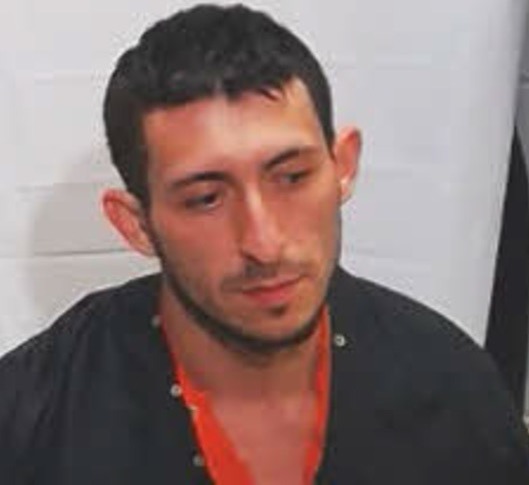Since April 1, Columbus Regional has had more than 20 overdose patients come into the emergency department. Eight to 10 of those patients have died.
“It’s shocking,” said hospital spokesperson Stephanie Miller.
The trend began in the Chadbourn area, then patients from the eastern end of the county began coming in, Miller said.
“Then we had six in one day.”
The sheriff’s office was called to another unexplained death Wednesday night, a male in the Chadbourn area. Radio traffic indicated another overdose in the city of Whiteville as well.
Fair Bluff Fire and Rescue posted an announcement on the department’s Facebook page Wednesday noting an increase in overdoses in the area.
“Over the last week or so our county has seen a drastic increase in overdoses related to opioids,” the post read. “As EMS providers we see firsthand the struggles that addicts and their families go through. We want to warn everyone that the products being sold on the street right now are very strong and your next ‘fix’ may be your last. Also there are counterfeit pills out there so what you think is a Suboxone or a Percocet may be something a lot stronger.”
The department also noted that care could be delayed if a scene is not considered safe. EMS typically stages outside of locations that could be dangerous until police or deputies clear the scene for rescue.
“Sometimes this means medical care is delayed for crucial minutes that could be the difference between life and death,” the post read.
Emergency services reported that there have been seven opioid overdoses called in to 911 since Friday. Officials noted that not all overdoses are even called in to 911, as some patients are transported to medical centers by private vehicle.
While aggressive enforcement against alleged dealers in the county has had some effect, illegal usage and the resultant addiction is still a major issue.
At one time Columbus County was rated one of the worst counties in the state for opioid use. New laws and more emphasis on medically-monitored pain management have caused some addicts to shift from painkillers to heroin, as well as sometimes toxic mixtures of heroin and fentanyl. Health and law enforcement officials said the pandemic only made matters worse.
The sheriff’s office is awaiting toxicology reports on both deadly cases, CCSO Chief Deputy Aaron Herring said.
“The two deaths we had recently are still awaiting reports from the medical examiner’s office,” Herring said. “We suspect they were overdoses, but that has not been confirmed.”
While they often respond as backup to emergency medical workers, law enforcement is not always notified of overdoses, Herring said.
“We do not get called to most of those,” Herring said, “so we are not aware of that many overdoses in the rural areas. However, we do feel like there is a rise (in overdoses) but from talking to rescue workers, we think most are happening in the cities.
“We would like to think it is because we have a proactive narcotics unit and the cities do not, but it is really hard to confirm that.”
“The City of Whiteville hasn’t seen an increase in overdoses over the last month,” Whiteville Police Chief Doug Ipock said. “The police departments all over the county are working hard to slow down and disrupt the distribution of drugs in our communities.”
When Lake Waccamaw Police assisted an overdosing user at a gas station at the lake earlier this year, there was little they could do criminally.
If a drug user overdoses and requires medical care, the incident turns into a medical emergency, Lake Waccamaw Police Chief Scott Hyatt said.
“In that case it’s a matter of trying to save a life,’ Hyatt said. “Unless there is obvious evidence of another crime, all we can do is assist the patient until rescue arrives, then turn them loose.”
North Carolina has a Good Samaritan law that prevents prosecution of anyone who calls 911 or asks law enforcement or emergency personnel for help for themselves or another person who is overdosing.
The law also prevents prosecution of someone found with small amounts of drugs or paraphernalia that are located because an officer is responding to an overdose call. The caller must give their own name to 911 or the responding officer.
Narcan – officially called naloxone – is an emergency treatment that can stop and reverse the effects of an overdose. Law enforcement officers are using Narcan more frequently, since police or deputies are often the first on the scene of an overdose.
Deputies, Highway Patrol troopers and municipal police officers usually have access to Narcan, as well as training in using the drug. Narcan (naloxone) reverses opiate overdoses in seconds by blocking the effects of opioids on the brain, and restoring breathing.
“We have recently attended training and refresher courses for all our staff,” Herring said. “Most of them have kits and we are awaiting resources for more kits to be provided.”
In 2018, District Attorney Jon David announced a new effort to combat opioid addiction in the 13thJudicial District and neighboring districts. In addition to requesting standard million-dollar bonds for heroin dealers, to punish drug dealers, the court system is placing more emphasis on helping addicts get treatment, rather than prosecuting drug use. The plan was challenged by the American Civil Liberties Union.
“Keeping people locked in jail before they have been found guilty of any crime is a misguided, ineffective, and likely unconstitutional way to combat our state’s opioid epidemic,” Sneha Shah, an attorney for the ACLU of North Carolina, said in a news release. “Setting high bail amounts does not deter crime, but it does harm communities, particularly people of color, and lead to overcrowded jails, wasting taxpayer dollars that could be better spent on drug treatment and intervention.”
Contrary to popular belief, addicts will not be arrested on sight if they ask a law enforcement officer for help.
“There are resources in our community to help those struggling with addiction,” Ipock said. “RHA and Trillium are two good sources, and we can help point them in the right direction.”
At the same time, law enforcement officers from all area agencies encourage people to call if they witness potentially illegal activity.
“The best thing people can do to help if they suspect drug sales is to call in and provide us with that information,” Ipock said.
“We appreciate any and all information about possible drug activity,” Herring said. “We investigate every complaint. The more information people can give us, the sooner we can get the dealers off the streets.”







